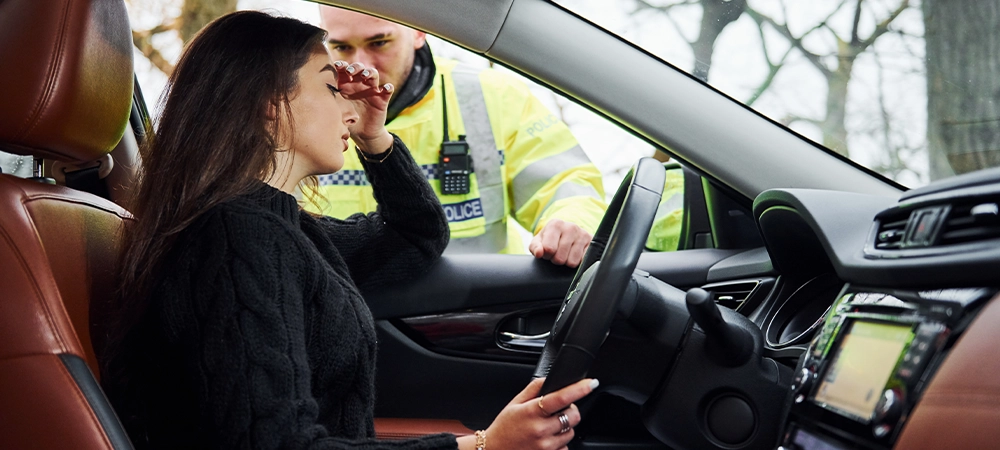A driving under the influence (DUI) charge can have life-changing consequences. Not only can it impact your driving privileges but also your financial status and legal record. This can come from the wide range of DUI suspensions and administrative penalties that you can receive following an arrest.
It’s important to know how these penalties are going to impact your life and what you can do about it. Here we’ll look at what you should do following an arrest to mitigate the consequences and get back on your feet.
Understanding DUI Laws in Canada
The DUI laws in Canada are strict and are meant to heavily deter anyone from driving under the influence. While commonly associated with alcohol, it also includes driving under the influence of drugs or a combination of both.
In regards to alcohol, the prohibited amount is 80 mg per 100 ml of blood. For cannabis, you need to have less than two nanograms of THC per millilitre. For most other drugs, any detectable amount within two hours of driving is prohibited.
The penalties for a DUI can change depending on a range of factors, but at a minimum, you’ll receive a criminal record, license suspension, and a fine. Other punishments can include participation in a rehabilitation program or even imprisonment.
Related Article:https://www.agpllp.ca/do-i-need-an-impaired-driving-lawyer-for-a-1st-time-dui/

Administrative Penalties
If found guilty, your license will be suspended for a minimum of one year. Along with this, there may also be administrative penalties. Here we look at what they are:
Fines – For your first offence, you will be fined a minimum of $1,000. This amount can increase for subsequent offences but can also be increased depending on how much you were over the limit.
Mandatory Education Programs – Offenders are usually required to complete an education course along with their fine and suspension. The likelihood and name of this course can change from one province to the next.
Ignition Interlock Program – Some provinces may require you to install an ignition interlock device on your vehicle. With this, you must pass a breathalyzer test before the vehicle will start. The duration of this can range from six months to several years.
Vehicle Impoundment – In certain cases, such as if you fail to give a breathalyzer sample, your vehicle may be impounded. Not only is this inconvenient, but you’ll also need to pay for it to be released.
Navigating License Suspensions
After a DUI arrest, your license is going to be suspended, usually for 90 days. If found guilty, that will then be extended to at least a year depending on whether this was your first charge or not.
1. Understanding the Suspension Notice
After your arrest, you’ll receive a suspension notice outlining the terms of the suspension. It’s important to understand this notice and read the information inside it. It will also give you the actions you must take next.
2. Requesting an Administrative Review or Appeal
Usually, provinces will have a process in place to review or appeal the suspension. You will need to submit a formal request but must do so quickly. You typically have 7 to 30 days.
The appeal process can be complex, and therefore it’s the best idea to get legal expertise to not only help you understand the process but also increase your chances of a successful outcome.
3. Complying with Provincial Regulations
To avoid any further complications, it’s important to comply with any regulations you may face during the suspension period. This may include surrendering your license, attending mandatory programs, or paying any fines.
Getting Back Your Driver’s License
Whether you are simply arrested or also found guilty, there are steps you may need to take before you can get back to driving once again.
1. Complete Mandatory Programs
As mentioned, education or treatment programs are a common prerequisite for getting your license back. These programs aim to help change your behaviour and make a repeated DUI offence less likely.
2. Install an Ignition Interlock Device
To get back out on the road, you may need to have an IID installed. This will be installed for you by a specialist and requires you to take a breathalyzer before you can start the ignition. You may also need to comply with regular maintenance checks for this.
3. Pay Reinstatement Fees
There are several outstanding fees that you may need to pay to get your license back. These fees will need to be paid in full before you can move forward.
4. Reapply for Your License
This can vary by province, but you may need to reapply for your license. You’ll want to do this as soon as possible, and you probably need to provide proof of program completion and proof of any fees you have paid.
Seeking Legal Assistance
A DUI is a serious offence in Canada, and the laws can be quite complex. It’s important to find a lawyer experienced in handling DUI cases. They can give you invaluable guidance on how to navigate the process and represent you during the appeal or in court.
Not only that but if you’re still facing a trial, a DUI lawyer will be able to fight your corner. There are a wide range of ways a lawyer can either get your charges reduced or have you walking away without a guilty verdict.
Related Article: https://www.agpllp.ca/what-is-a-dui-lawyer-and-why-do-i-need-one/

Final Thoughts
When arrested for a DUI, there are several factors you need to consider. One of those is how to navigate the various penalties and suspensions you receive. This can be daunting at first, but it’s important to focus on the next steps you need to take.
Here’s where a lawyer can offer you a helping hand. They’ll be able to answer any questions you may have and work with you to find the best solution. If you need legal assistance, contact AGLP LLP today. We’ll be happy to offer you a free consultation to see how we can help.





